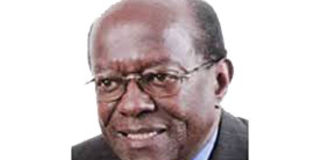Ugandans need common vision

Peter Mulira
What you need to know:
An ideology makes the future predictable and binds people together.
Sometime in 1980, my cousin, Erisa Kironde, asked me to represent him at a meeting to be held at the City Council Hall at which a new political party was to be formed.
I asked Kironde, who were the likely candidates for the leadership of the new party. I demurred after I was told that the leader would be elected from either Yona Kanyomozi (pictured) or Yoweri Museveni.
I turned down the request for three reasons. First, right from my school days, my political sympathies were with the Democratic Party. I remember the day my colleagues at King’s College Budo sent me to the party headquarters to seek blessings for our group of supporters.
The party official, who attended to me, was none other than youngish Paul Kawanga Semwogerere, who in 1980, was standing for president. I was not about to change my political allegiance.
Second, Kanyomozi was a friend from our London days where we were involved in political activism. Although I considered that Kanyomozi had had sufficient exposure and political preparation, I did not think that our generation was ready to lead the country.
Lastly, at the time, I had not heard of Museveni and as such, I was not aware of his leadership qualities to enable me to give him my vote for such an important office given that whoever was elected as party president, would also stand for the country’s presidential elections.
In the end, Museveni was elected president of Uganda Patriotic Movement (UPM) and after leading a guerilla war for five years, became President of the Uganda. Was my decision not to participate in the formation of UPM misguided?
In life, we are called upon to make varying decisions and a group of people can be given identical information and still reach different conclusions.
For example, some people may be concerned about the environment whereas others are not although all have information, which show that destruction of forests to produce charcoal, is bad for humanity.
Such varying opinions result from the differing values held by each individual, values being used here to mean standards of conduct that cause people to act in certain ways. Values are fundamental beliefs which give us compass in life whereas a fact represents “what it is.”
In 1980, I was given information or fact that there was going to be an election of a leader of a new party. I decided not to participate in the election because I considered that it was not right to change my political allegiance. This was my value judgment,
Gradually, we adopt a set of values or beliefs that we accept as true.
This set of beliefs about the world is what is known as an ideology, which can be defined as a systematic set of beliefs that provide a picture of the world that a group of people accepts as true.
Ideologies are important because they enable people to understand their environment and order their lives accordingly. An ideology makes the future predictable and binds people together by providing them with a common value system and a way of looking at the world.
In brief, an ideology provides answers to the following questions:
How can a country’s resources be distributed most equitably?
What political system can cater to the needs and wishes of its people most effectively?
What are best values and beliefs of each economic and political system?
Our problem as a country is that we lack a common ideology. lf we are to learn anything from the ongoing elections, it is that we need a common vision as a country.
Mr Mulira is a lawyer.



